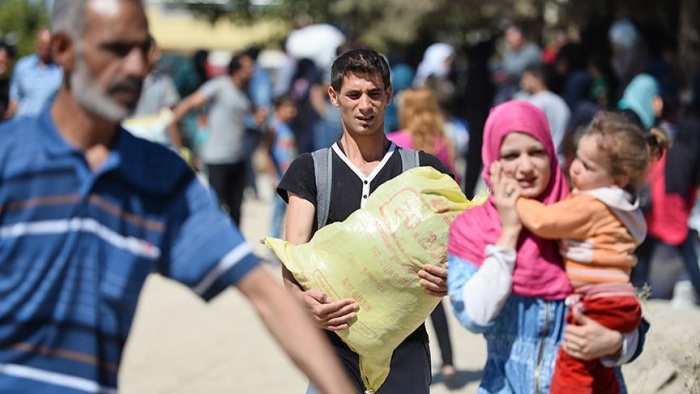The International Crisis Group (ICG) released a report on Monday which claims that a generation of young Syrians in Turkey is susceptible to exploitation by criminals and militant groups.
The report, titled “Mitigating risks for Syrian refugee youth in Turkey’s Şanlıurfa,” pointed out risks associated with the current situation of young Syrian refugees in Turkey by focusing on the particular case of the border province of Şanlıurfa.
Drawing attention to the fact that roughly half of some 3.6 million Syrian refugees hosted by Turkey are under the age of 18, the report suggests that many of these young people are exposed to discrimination and exploitation and that their psycho-social traumas are left unaddressed, which contributes to their vulnerability.
“Now with over 450,000 Syrians, most of them young and traumatized, Şanlıurfa is grappling ever more with insufficient jobs, inadequate school capacity, early marriages and public administration deficiencies, as well as increase in crime. Inter-communal strains are emerging in Şanlıurfa that could lead to clashes and presage similar tensions elsewhere,” the report said.
Crime rates have increased dramatically in Şanlıurfa since the refugee influx, with a fourfold rise in convictions (from 577 to 2,463) between 2010 and 2016.
Official figures for juveniles arrested for crimes in southern and eastern Turkey more than doubled in the last decade, and provinces with more refugees per capita saw higher increases.
The ICG argued that criminal networks target Syrian youth in particular for smuggling, sexual exploitation and drug running.
The report also pointed out that militant jihadist indoctrination and recruitment of Syrian refugee youth present a long-term danger to Turkey’s security and social cohesion.
“Many Syrian youths’ personal histories of trauma could make them susceptible to hostility toward groups that they are told are the cause of their loss and displacement,” the report said, adding, “Though many of these organizations do not have an explicitly anti-Turkish message, the intolerance and the militancy they propagate may undermine their young pupils’ chances of effective integration in diverse, multi-ethnic settings, whether in Turkey or Syria.”
The report warned that some who embrace these messages could turn against Ankara if Turkey changes its policies in Syria and said that Syrians sympathetic to radical jihadist groups in other Turkish border areas told the ICG that Turkey could arouse their antipathy if its government reconciles with the regime of Syrian President Bashar al-Assad or distances Turkey from Syria’s opposition.



